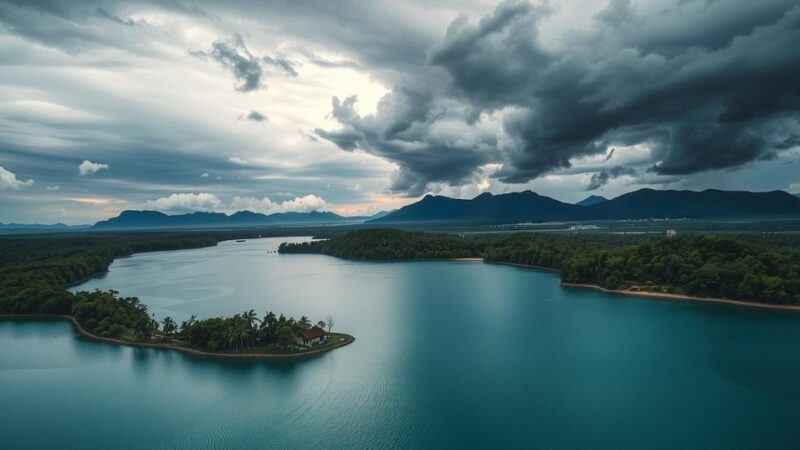Major General Peter Cirimwami, military governor of North Kivu province, died from injuries sustained in combat with M23 rebels. The conflict has escalated significantly, leading to widespread panic in Goma and displacing over 400,000 people. Diplomatic responses have emerged, calling for evacuations as the area faces one of the largest humanitarian crises worldwide.
The military governor of North Kivu province, Major General Peter Cirimwami, tragically succumbed to injuries sustained during a frontline confrontation with M23 rebel forces in the eastern Democratic Republic of the Congo. His death was reported following intense fighting near Goma, where the rebels have significantly increased their territorial control, causing widespread alarm.
While details surrounding Major General Cirimwami’s passing are limited, he had reportedly visited troops on the front line shortly before his death, reinforcing his active role in the combat efforts against the M23 rebels. Multiple sources, including government and military personnel, confirmed his death anonymously due to the sensitive nature of the situation.
The M23 rebel group, which has gained ground and encircled the provincial capital, Goma, is accused of perpetrating numerous atrocities, including mass displacements and violence against civilians. The ongoing conflict has displaced over 400,000 individuals this year alone and poses a potential threat of regional warfare, according to United Nations officials.
Residents of Goma have expressed panic as the rebel group captured strategic areas, including the town of Sake, which is critical for maintaining access to the provincial capital. UN representatives have highlighted concerns about the deteriorating safety of internally displaced persons, many of whom have fled the violence and now live in precarious conditions.
Diplomatic responses have emerged, with the United States, United Kingdom, and France advising their nationals to evacuate Goma while borders and airports remain operational. The international community remains cautiously aware of the implications of the ongoing conflict, which has seen over two million people displaced since the resurgence of hostilities three years ago.
The DRC government and the United Nations have implicated Rwanda in supporting the M23, a group predominated by ethnic Tutsis, amidst ongoing tensions along the border. Despite these claims, the Rwandan government has denied backing the militia, asserting its presence in eastern DRC is a precautionary measure to safeguard national security.
This alarming situation has led to widespread fear among displaced individuals who recall the violence from previous offensives, leading to an urgent need for humanitarian assistance amidst deteriorating conditions in refugee camps, known for inadequate sanitation and vulnerability to violence.
The humanitarian crisis in the eastern DRC is thus indicative of the broader instability and fragility that characterize the region, necessitating immediate attention from both national and international entities.
The article discusses the ongoing violence in the North Kivu province of the Democratic Republic of the Congo (DRC), particularly focusing on the recent death of Major General Peter Cirimwami amid escalating clashes with M23 rebels. It describes the growing threat posed by the M23 group, which has expanded its territorial control and is implicated in widespread humanitarian crises, including the displacement of hundreds of thousands of individuals. This highlights the long-standing conflict in the eastern DRC, which is perpetuated by complex regional dynamics and external influences.
In conclusion, Major General Peter Cirimwami’s death underscores the escalating conflict in North Kivu, where M23 rebels have made significant advances, jeopardizing the stability of Goma and displacing thousands. The international response, involving evacuations and condemnation of violence, reflects growing concern over the humanitarian implications of this conflict. The situation remains precarious, warranting urgent intervention to address the multifaceted crises plaguing the region.
Original Source: www.aljazeera.com







